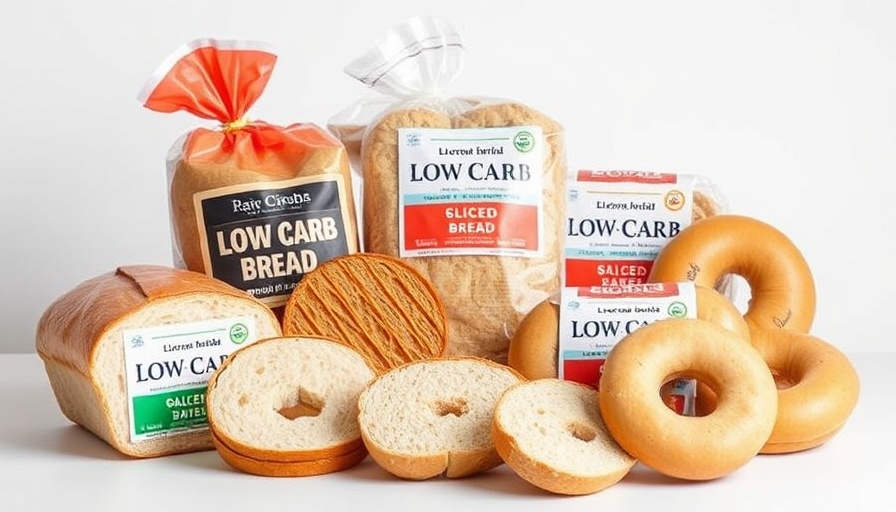
Understanding Low Blood Sugar: The Essential Basics
Low blood sugar, or hypoglycemia, is a condition that can affect many, particularly those managing diabetes, prediabetes, or other metabolic health issues. It occurs when glucose levels in the blood drop below what's necessary for the body to function properly. Recognizing the signs of low blood sugar—like dizziness, anxiety, and confusion—is critical for anyone concerned about their metabolic health. But while medical advice and treatment are vital, knowing which foods can bring those levels back up may also empower individuals to take control of their health.
Top Foods to Elevate Low Blood Sugar Quickly
When the body is in a low glucose state, consuming fast-acting carbohydrates is essential. Here are some of the best options:
- Fruit Juice: A quick go-to, fruit juices like orange juice can rapidly spike blood sugar levels. One small glass has sufficient sugars to help.
- Honey: Natural and effective—just one tablespoon of honey can deliver instant results.
- Soft Drinks: Regular (non-diet) soft drinks can effectively raise blood sugar levels in emergencies due to their high sugar content.
- Glucose Tablets: Ideal for those with diabetes; these fast-acting tablets are designed specifically for low blood sugar episodes.
- Dried Fruits: The concentrated sugars in dried fruits, such as raisins or apricots, make them a powerful ally against low blood sugar.
The Role of Whole Foods
While the aforementioned options work in emergency situations, it's important to focus on whole foods that can support stable blood sugar levels over time. Foods that are high in fiber and protein not only provide slow-releasing energy but also help maintain overall health. Incorporate foods like:
- Whole Grains: Options such as brown rice and quinoa can slow the rise in blood sugar while providing lasting energy throughout the day.
- Nuts and Seeds: Almonds and chia seeds are not only nutritious but can stabilize blood sugar levels due to their healthy fat and protein content.
- Legumes: Foods like lentils and beans are excellent sources of fiber and protein, promoting sustained energy.
Foods to Avoid When Managing Blood Sugar Levels
Just as it's important to understand which foods can help, it's equally crucial to know which foods can exacerbate blood sugar issues. Some common culprits include:
- Refined Carbohydrates: Foods like white bread and pastries can cause rapid spikes and dips in blood sugar.
- Excessive Sugary Foods: Confections, candies, and sweet snacks, while enjoyable, can lead to increased instances of hypoglycemia if not balanced with protein.
- High Glycemic Index Foods: Foods with a high glycemic index should be consumed in moderation as they can affect blood sugar stability.
Practical Tips for Managing Blood Sugar
Anyone concerned about low blood sugar should consider these practical strategies:
- Regular Meals: Consistency is key. Eating small, balanced meals throughout the day helps maintain stable glucose levels.
- Monitor Blood Sugar: Regularly checking your blood sugar can help you take timely action when levels start to drop.
- Stay Hydrated: Adequate hydration is essential for optimal metabolic function and can help with blood sugar management.
Emotional and Psychological Impact
Living with the fear of blood sugar fluctuations can take a toll on mental health. Education, support, and easy access to monitoring tools can significantly enhance one's quality of life. Remember, each small step—whether it’s preparing a balanced meal or sharing your experience with others—can foster resilience and positivity around managing these conditions.
Summing It Up
Understanding the best foods for treating low blood sugar, along with those to avoid, is crucial for anyone navigating the challenges of metabolic health. Making informed choices empowers you to make proactive decisions, contributing to a more stable and vibrant life. If you or someone you love manages conditions like diabetes, consider these guidelines to pave the path to better health.
 Add Row
Add Row  Add
Add 



Write A Comment